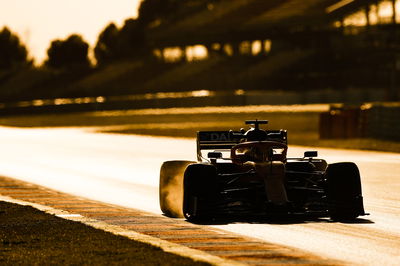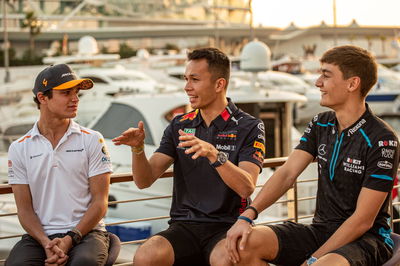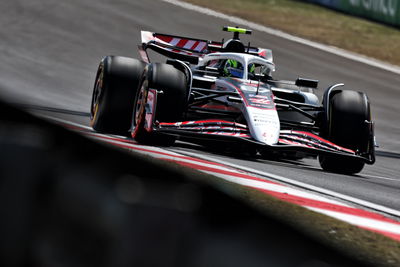F1 has chance to regain moral compass after McLaren takes lead
McLaren may have just sparked inspiration by moving to protect its Formula 1 staff amid the coronavirus crisis which should set off a chain reaction spreading to the very top and bottom of the sport's hierarchy.
On Thursday, the Woking squad became the first F1 team to place some of its staff on furlough in a bid to save costs during the COVID-19 pandemic.
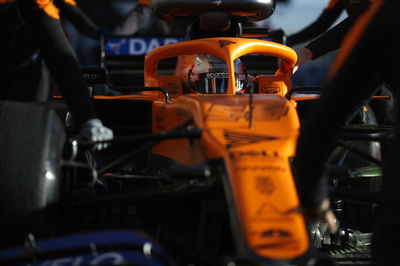
McLaren may have just sparked inspiration by moving to protect its Formula 1 staff amid the coronavirus crisis which should set off a chain reaction spreading to the very top and bottom of the sport's hierarchy.
On Thursday, the Woking squad became the first F1 team to place some of its staff on furlough in a bid to save costs during the COVID-19 pandemic.
Drivers Carlos Sainz and Lando Norris, as well as members of senior management including CEO Zak Brown, also agreed to take the same pay reduction as the other members of McLaren’s workforce.
“The McLaren Group is temporarily furloughing a number of employees as part of wider cost-cutting measures due to the impact of the Covid-19 pandemic on its business,” a McLaren statement read.
“These measures are focused on protecting jobs in the short-term to ensure our employees return to full-time work as the economy recovers.”
It comes after new measures were put in place by the UK government through a job retention scheme that enables companies to claim a grant covering 80 percent of the wages of a furloughed worker up to £2,500 a month.
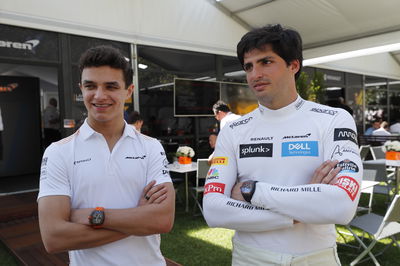
The ongoing coronavirus outbreak has left major uncertainty hanging over F1, with the start of the season already being heavily delayed after the first eight races were either postponed or cancelled altogether.
While it is not clear when the season will be able to start with little sign of the global COVID-19 crisis improving in the near-future at least, F1 chiefs remain hopeful of staging 15-18 rounds as part of the 2020 world championship.
Concerns are growing how the financial pressure caused by a lack of racing will impact F1 and its teams, particularly independent outfits such as Williams.
Wider measures, including moving F1’s traditional summer shutdown forward from its usual August break to the spring, and delaying the introduction of 2021’s planned technical regulations until 2022 have already been taken in a bid to save costs and ease some of the burden on teams in the medium-term.
“We lost quite a few manufacturers [in 2008], and we don’t want that to happen,” Racing Point team principal Otmar Szafnauer told Sky Sports.
“I remember at the time that we lost some teams as well and we had some new teams come in.
“What we've got to do is learn from that, do a bit of belt-tightening, make prudent decisions and save costs where we can because for sure the revenue isn’t going to be the same.”
F1 is not the only major sporting competition to make moves in response to the government’s new scheme. Football teams across the Premier League and English Football League have already taken a similar stance by placing their workforce on furlough, though that has not come without controversy.
The likes of Tottenham Hotspur and Newcastle have sparked outrage and have been accused of abusing the government’s scheme after taking the decision to continue to pay its players wages in full while putting members of its non-playing staff on furlough. This is despite football in Great Britain being suspended until at least the end of this month.
Bournemouth and Norwich are the other two Premier League clubs to have utilised the government’s job retention scheme, with Bournemouth going further by announcing that members of its first team staff including manager Eddie Howe had taken “significant, voluntary pay cuts”.
In the Championship, leaders Leeds United have already volunteered to take a wage deferral, while Birmingham City players who earn more than £6,000 a week have been asked to take a 50 percent cut for the next four months. But Premier League club’s apparent exploitation of the scheme has prompted criticism from politicians, who say the teams are living in a “moral vacuum.”
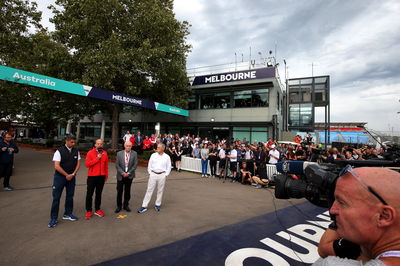
Following the debacle surrounding the cancellation of the Australian Grand Prix, F1 has taken some positive steps to save face after facing criticism, including from reigning world champion Lewis Hamilton, who questioned the decision to attempt to stage the Melbourne season-opener and claimed the sport’s motives were financially-driven.
F1 now has the chance to go further and regain its moral compass by proving that Hamilton’s “cash is king” quip had no grounding.
Teams are already putting the sport in good light by responding to the government’s call to help develop and manufacture life-saving medical devices such as ventilators, with Mercedes pioneering a new breathing aid and McLaren aiding supply of crucial protective equipment for frontline NHS staff.
F1 organisers have also changed tactics from a short-term approach looking to cram as many races as possible at the earliest available time, to assessing its long-term scheduling and impact which reaches into at least 2022 following the delay to the technical rules overhaul.
The sport is quickly realising what started as a background concern is now a major threat to the future of its key pillars, namely the teams and personnel who keep the wheels turning, and serious action is being taken to protect all involved.
While F1 can still do more, McLaren has marked an encouraging first step that might just persuade others to act.
